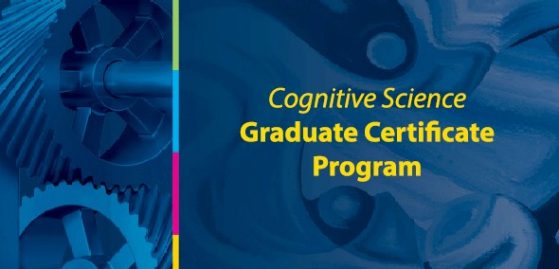Weinberg Institute for Cognitive Science to Begin Offering Graduate Certificate
 Beginning with the fall 2015 semester, the Weinberg Institute for Cognitive Science will offer a graduate certificate in cognitive science.
Beginning with the fall 2015 semester, the Weinberg Institute for Cognitive Science will offer a graduate certificate in cognitive science.
Cognitive science is the interdisciplinary study of the mind and its processes and behavior. The program encompasses multiple research disciplines, including neuroscience, psychology, philosophy, computer science, linguistics, and economics.
Eligible Ph.D. and master’s graduate students can earn their certificate by completing 12 credits selected from five categories within cognitive science, including cognition and computation, philosophy and cognition, psychology and cognition, language and cognition, and neuroscience and cognition.
Students in the certificate program will have the chance to work in a cross-disciplinary environment and enhance their prospective funding, network of colleagues, and career options.
“The inherently multidisciplinary nature of cognitive science, including the quest to understand how we humans think, perceive, feel, remember, and act, is not only important to virtually every aspect of human existence, but at the same time makes for a fascinating intellectual challenge of widespread interest that can—and should—be available to undergraduates and graduate students alike,” says Samuel Epstein, Director of the Weinberg Institute for Cognitive Science, Arthur F. Thurnau Professor and Professor of Linguistics.
Funded by a generous gift from Marshall M. Weinberg (’50), the Weinberg Institute for Cognitive Science was founded in 2014 and aims to be a world-class center for teaching and research in the field. The institute builds on a rich history of cognitive science and related fields at the University of Michigan, which has been a key home for the emerging discipline, contributing major discoveries and graduating several alumni who are considered founding members of the field.
Epstein believes that the graduate certificate will complement the center’s undergraduate major in cognitive science.
“We hope to explore ways of integrating aspects of graduate and undergraduate teaching and learning experiences both in the classroom and in the lab,” says Epstein.

